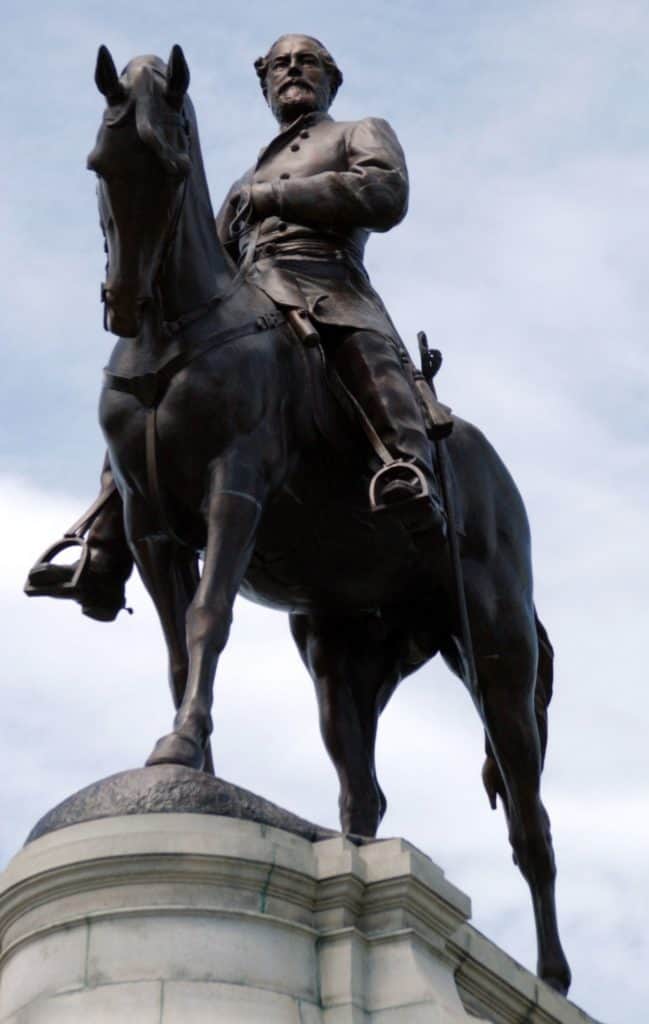Mothball the Confederate Monuments
Rich Lowry, National Review, August 15, 2017

The still standing Gen. Robert E. Lee Monument in Richmond, Virginia. (Credit Image: © Chuck Myers/MCT/ZUMAPRESS.com)
Robert E. Lee wasn’t a Nazi, and surely would have had no sympathy for the white-supremacist goons who made his statue a rallying point in Charlottesville, Va., last weekend.
That doesn’t change the fact that his statue is now associated with a campaign of racist violence against the picturesque town where Thomas Jefferson founded the University of Virginia. The statue of Lee was already slated for removal by the city, but the Battle of Charlottesville should be an inflection point in the broader debate over Confederate statuary.
The monuments should go. Some of them simply should be trashed; others transmitted to museums, battlefields, and cemeteries. The heroism and losses of Confederate soldiers should be commemorated, but not in everyday public spaces where the monuments are flashpoints in poisonous racial contention.
{snip}
There’s no reason to honor Jefferson Davis, the blessedly incompetent president of the Confederacy. New Orleans just sent a statue of him to storage — good riddance.
{snip}
Robert E. Lee, on the other hand, is a more complicated case. He was no great friend of slavery.
{snip}
Yet, faced with a momentous choice at the start of the war, he decided he was a Virginia patriot rather than an American nationalist.
{snip}
The Baltimore commission has called for moving a striking dual statue of Lee and Stonewall Jackson to the Chancellorsville, Va., battlefield where the two last met before Jackson’s death. This would be appropriate, and would take a page from the Gettysburg battlefield. A statue of Lee commemorates Virginia’s losses and overlooks the field where General George Pickett undertook his doomed charge.
{snip}
Lee himself opposed building Confederate monuments in the immediate aftermath of the war. “I think it wiser,” he said, “not to keep open the sores of war, but to follow the examples of those nations who endeavoured to obliterate the marks of civil strife and to commit to oblivion the feelings it engendered.” After Charlottesville, it’s time to revisit his advice.
[Editor’s Note: National Review is not even a shell of its former self. Read about what honorable publication it once was here.]















